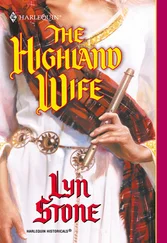‘You have her address, then?’
‘Always at the top of her report. Mon Repos, Saville Row, Bath. She’s a bit old-fashioned, so she leaves off the postcode.’
Mon Repos wasn’t exactly modern either. ‘Saville Row is the alleyway behind the Assembly rooms, isn’t it?’
‘Yes, but Miss Brie wouldn’t put it like that. She’s proud of the address, even though it’s over a shop.’
Ingeborg wasn’t discouraged by what she’d learned so far. A punctilious woman was likely to remember the clients she’d met at Matlock and Russell. With Miss Brie’s cooperation this phase of the investigation ought to be concluded shortly. Diamond’s shocked face would brighten up the day.
She toiled to the top of Broad Street, across George Street, through Bartlett Street and on to Saville Row, uphill all the way. Anyone living here and regularly borrowing books from the library would need to be fit.
A black door squeezed between two shops had a card set into a metal frame with the legend: Mon Repos, press bell and take stairs to first floor .
She did as she was asked. The stairs were unlit and uncarpeted. At the top, a second card advised: Mon Repos, privacy please, no free newspapers, no uninvited callers .
Sorry, Ingeborg silently said, but this uninvited caller isn’t going away. She rang the bell.
A delay of half a minute wasn’t promising. She looked up and about her and was reassured that it was nothing personal. A lady who hadn’t yet entered the age of postcodes was unlikely to be equipped with CCTV.
Then there were footsteps and the door opened a fraction. Ingeborg could just about make out a face not far above the level of the safety chain. Nothing was said. She had a suspicion that the door was about to be slammed shut, so she put her foot against it and said, ‘Miss Brie, I’m Ingeborg Smith, from Bath police. May I come in?’
‘Is something the matter?’ a voice suitable for a National Trust guide (but not so welcoming) asked.
‘It’s all right. I just need your help.’
‘Are you in trouble?’
‘Not at all.’ She pressed her ID close to the gap. ‘It would be easier if you let me in.’
The sound of the chain being released was encouraging. The gap widened and Ingeborg looked with awe at Miss Brie, so close to being a stick insect that she might have squeezed through the door with the chain still in place. A hint of eau de cologne was left in her wake as she led the way through a small entrance hall into a sitting room that could have been an interior from a 1930s René Clair film, with lace edging everywhere, on the curtains, the lampshades, the tablecloth, the antimacassars and over the bird cage. Now that she was seated, ankles crossed, tiny hands resting in her lap, the top of a lace petticoat showed at the divide of her white blouse. She was at least seventy and probably half blind if the way she applied her lipstick was anything to go by.
‘I do hope you’re not here to sell me something,’ she said, having waved Ingeborg to the only other armchair.
‘Not at all. I’m hoping you can tell me a little about Matlock and Russell. You worked there, I understand.’
‘For twenty-seven years, typing, filing and occasionally showing people round.’
‘Until when?’
‘Until the manager, Mr. Chalk, decided to retire and died within a matter of days. That was two-thousand and five. It was a difficult time. People weren’t buying so much. Has there been an art theft?’
‘Not to my knowledge, but it’s an item of art I would like to ask you about, a fourteenth century drawing that turned out to be of Thomas Chaucer.’
‘I remember. It was towards the end of my time there.’
‘Two-thousand and four, I believe.’
‘You really are well briefed. Would you join me in a preprandial glass of Courvoisier?’
Not while on duty, Ingeborg realised she ought to say. A lager top would go down a treat, she was tempted to say. ‘How kind — I’d love to,’ was what she actually said. Warming up the witness was a sensible move, even if she wasn’t quite certain what she was letting herself in for.
Two balloon glasses were produced and she remembered what Courvoisier was. ‘I was born and brought up in France,’ Miss Brie volunteered as she poured generously from a cut glass decanter. She went on to open a tin of biscuits and arrange some on a Limoges plate that looked as if it, too, was made of lace. This was evidently a daily ritual. ‘I do insist that you have a Bath Oliver with it. I’ve survived on them for most of my adult life.’
‘They’re hard to find now,’ Ingeborg said, taking one, a hard, bland version of a cream cracker.
‘Not if you know where to shop. It’s a well kept secret.’
‘Are you going to share it with me?’
‘Certainly not. A secret shared is a secret lost.’
This was not promising. ‘We were speaking about the Thomas Chaucer drawing,’ Ingeborg prompted her.
‘I remember because it was so unusual. You don’t see much pen and ink work from such an early period.’
‘I believe it was first thought to be of the poet, his father.’
‘The seller firmly believed so. We kept an open mind and insisted it was authenticated by an expert, a professor who made Chaucer a life study.’
‘John Gildersleeve.’
‘Correct.’
‘Unfortunately, he was shot a short while ago.’
‘I heard on the radio. A dreadful incident. Is this why you’re here?’
‘Indirectly, getting background information.’
Miss Brie took a long sip of brandy and began to talk more freely. ‘When the professor recognised the subject as Thomas, he saved us all, and not least our client — who wasn’t best pleased at the time — from a professional faux pas. Imagine the embarrassment if it had been sold to the nation for a fortune and later turned out to have been incorrectly identified.’
‘Who was the client?’ Ingeborg asked, and immediately saw from Miss Brie’s eyes that she’d asked one brandy too soon.
‘I can’t tell you that. We had an anonymity clause.’
‘But it’s history now. You’re not in business any longer.’
‘I have my standards, dear.’
‘It’s become a police matter now. It’s gone past personal ethics. We’re investigating the professor’s death.’
Miss Brie smiled. ‘You don’t scare me in the least. My parents stood up to the Gestapo. I’m unlikely to be bullied into submission by an English lady policeman.’
‘I’m not here to bully you.’
‘And I’m not betraying a confidence. Not now. Not ever.’
‘That is a disappointment. And Mr. Chalk is dead?’
‘He wouldn’t have told you, either.’
‘But the client is still with us?’
Miss Brie chose not to answer and emphasised it by tilting her little chin a fraction higher.
Ingeborg said, ‘If the client was also dead, there’d be no reason to keep this up.’
Miss Brie said, ‘Are you secretly recording this?’
‘Good heavens, no.’
‘Even if you leave a hidden microphone here, you won’t catch me out. I’m not going to make a phone call the minute you leave.’
‘There’s no question of hidden mikes.’
‘I’m sober, you know. Being French, I can take brandy like water.’
‘I wouldn’t dream of doing anything underhanded,’ Ingeborg said, setting aside the fact that she’d only just returned from an undercover mission. ‘I believe in appealing to people’s public spirit. I wonder if I can persuade you that there’s a higher morality at stake here. For everyone’s sake we need to catch the person who shot the professor before there’s another shooting.’
Miss Brie swirled the brandy and looked over the glass. ‘All I will say is this. Our client couldn’t possibly have fired the shot.’
Читать дальше
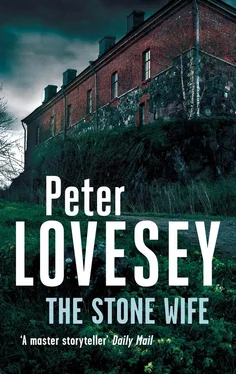
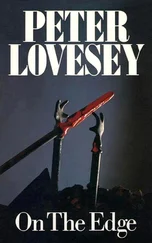
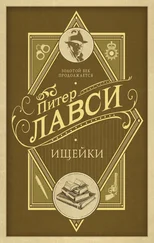
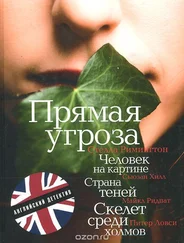

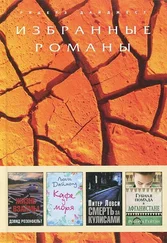

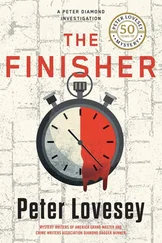
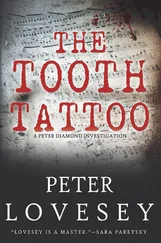
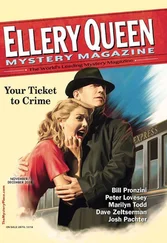
![Питер Ловси - Do Not Exceed the Stated Dose [Stories]](/books/437200/piter-lovsi-do-not-exceed-the-stated-dose-stories-thumb.webp)
